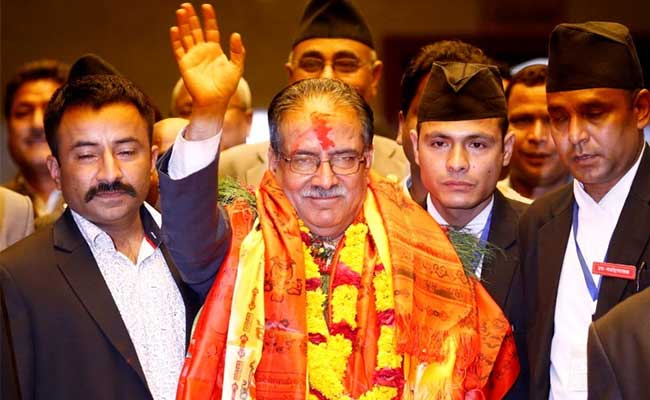
The extreme privation of his childhood spurred Prachanda’s interest in far-left ideology (File)
Kathmandu:
Prime Minister Pushpa Kamal Dahal lived in seclusion directing Nepal’s guerrilla war but emerged from the jungle to lead the Himalayan republic when his cadres laid down their arms and joined mainstream politics.
Still widely known by his nom de guerre Prachanda (“The Fierce One”), Dahal on Friday lost a parliamentary vote of confidence that will force him to relinquish the nation’s revolving door premiership for the third time.
The civil war he launched in 1996 drew disaffected Nepalis into his Maoist rebellion with a rousing call to end centuries of feudal inequality, ultimately claiming more than 17,000 lives and leaving thousands more still missing to this day.
With a peace settlement that abolished Nepal’s monarchy and brought the Maoists into government, Dahal was able to claim victory when the conflict ended a decade later.
“We believe that the country has adopted the agenda of the Maoists,” he said in a 2022 interview with local broadcaster Kantipur.
Dahal was born into a high-caste Hindu family in 1954 but grew up in the poverty endemic to rural Nepal at the time, and spent his childhood herding goats and buffalo.
The extreme privation of his childhood spurred an interest in far-left ideology and he joined a communist party in 1980 at the age of 25.
He worked as a teacher but gradually became convinced that an armed insurgency was the only way to bring radical change to one of the world’s poorest countries.
Through the war, he was a mysterious figure, anonymous to the public except for his wartime alias, until he emerged in 2006 to address his cadres as peace talks began.
Dahal steered his party to an unexpected victory in elections two years later but resigned after nine months following a deadlock over attempts to integrate former Maoist fighters into the army.
He has since gone on to serve as prime minister two more times, including another administration that lasted less than a year and his current stint of barely 18 months — both common lengths of tenure under the ever-shifting alliances of Nepal’s parliament.
“Abandoning Rank And File”
Dahal and his party colleagues credit the war for increasing the political representation of marginalised groups and improving their livelihoods.
He has been branded a dynamic and charismatic leader for his ability to navigate the choppy waters of Nepalese politics.
However, critics say he is an opportunist who has formed alliances with various parties to suit his own personal interests.
Since joining parliament he has come under fire for his lavish lifestyle, notably when it emerged that he had rented a sprawling luxurious estate in Kathmandu.
Many former guerrillas have quit the party, accusing Dahal and other leaders of betraying their sacrifices.
Two deputy leaders seen as likely successors were among those to depart, helping Dahal consolidate power.
Critics also accused him of fostering a culture of nepotism in the party by promoting his daughters and relatives.
Aditya Adhikari, an author who has written on the Maoist movement, said in 2016 that Dahal began to be seen after the war as someone attracted not just to “money and power”.
“But also to people outside the movement who were rich and powerful, abandoning the rank and file and alienating his base.”
Dahal married his wife Sita when the pair were still teenagers and she was by his side during the civil war, but little else is publicly known about her life before the conflict’s end.
She died in 2023 after a long illness. The couple had four children, two of whom also died.
(Except for the headline, this story has not been edited by NDTV staff and is published from a syndicated feed.)


































